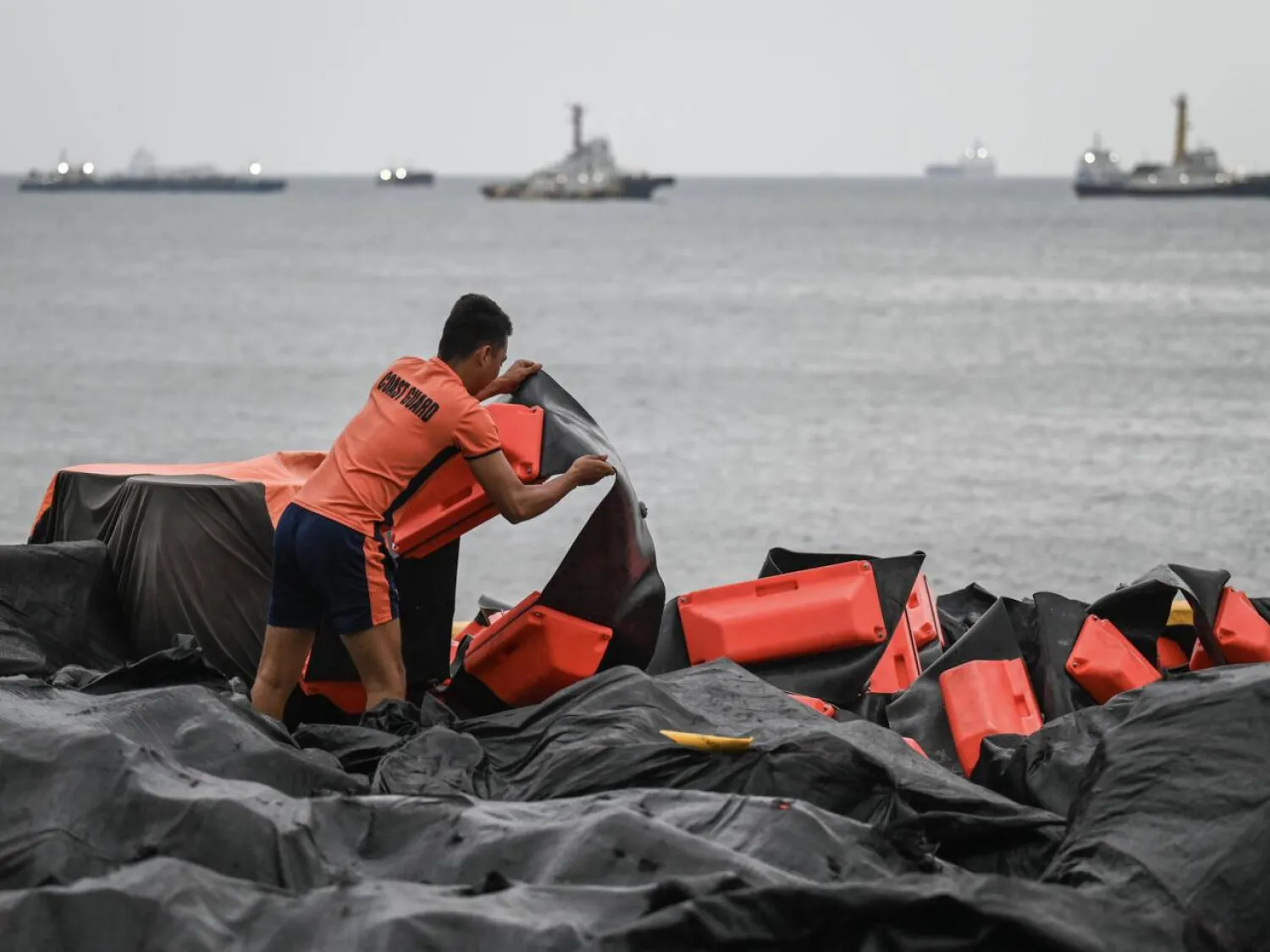The Philippine Coast Guard planned Friday to deploy oil dispersant and floating barriers a day after a tanker carrying 1.4 million liters of industrial fuel sank off Manila.
AFP journalists at the Port of Limay in Bataan province watched coast guard personnel preparing equipment for a boat to be used against the slick in Manila Bay.
The MT Terra Nova sank in rough seas nearly seven kilometers (4.3 miles) off Limay municipality early Thursday after setting out for the central city of Iloilo.
An oil slick stretching several kilometers has been detected in the waterway, which thousands of fishermen and tourism operators rely on for their livelihoods.
But coast guard spokesman Rear Admiral Armando Balilo told a briefing Thursday that it appeared diesel fuel used to power the tanker had leaked and, so far, not the industrial fuel oil cargo.
The coast guard has set a target of seven days to offload the cargo and prevent what Balilo warned would be the worst oil spill in Philippine history if it were to leak.
The incident happened as heavy rains fueled by Typhoon Gaemi and the seasonal monsoon lashed Manila and surrounding regions in recent days.
Swamped by waves
After setting out late Wednesday the captain decided to abort the journey to Iloilo due to rough seas, but as the vessel turned back it was swamped by large waves and went down.
One crew member died, but 16 were rescued.
An investigation into the cause of the incident was underway but Balilo said Thursday the vessel had not broken rules on heavy-weather sailing.
Campaign group Greenpeace said the owners of MT Terra Nova should "foot the bill" for any environmental damage and compensate affected communities.
One of the worst oil spills in the Philippines was in February 2023, when a tanker carrying 800,000 liters of industrial fuel oil sank off the central island of Mindoro.
Diesel fuel and thick oil from that vessel contaminated the waters and beaches along the coast of Oriental Mindoro province, devastating the fishing and tourism industries.
The oil dispersed over hundreds of kilometers of waters famed for having some of the most diverse marine life in the world.
A tanker sank off the central island of Guimaras in 2006, spilling tens of thousands of gallons of oil that destroyed a marine reserve, ruined local fishing grounds and covered stretches of coastline in black sludge.
Philippines to Deploy Floating Barriers to Contain Oil Spill

A coast guard staffer arranges an oil spill containment boom to be use3d in Manila Bay. Jam Sta Rosa / AFP

Philippines to Deploy Floating Barriers to Contain Oil Spill

A coast guard staffer arranges an oil spill containment boom to be use3d in Manila Bay. Jam Sta Rosa / AFP
لم تشترك بعد
انشئ حساباً خاصاً بك لتحصل على أخبار مخصصة لك ولتتمتع بخاصية حفظ المقالات وتتلقى نشراتنا البريدية المتنوعة







